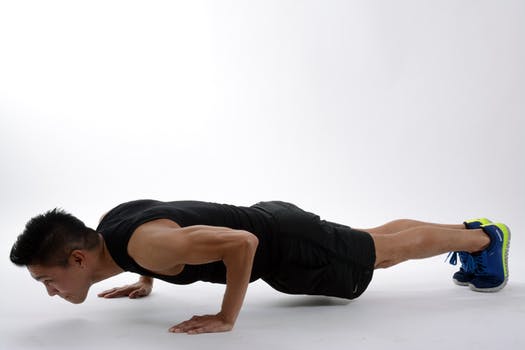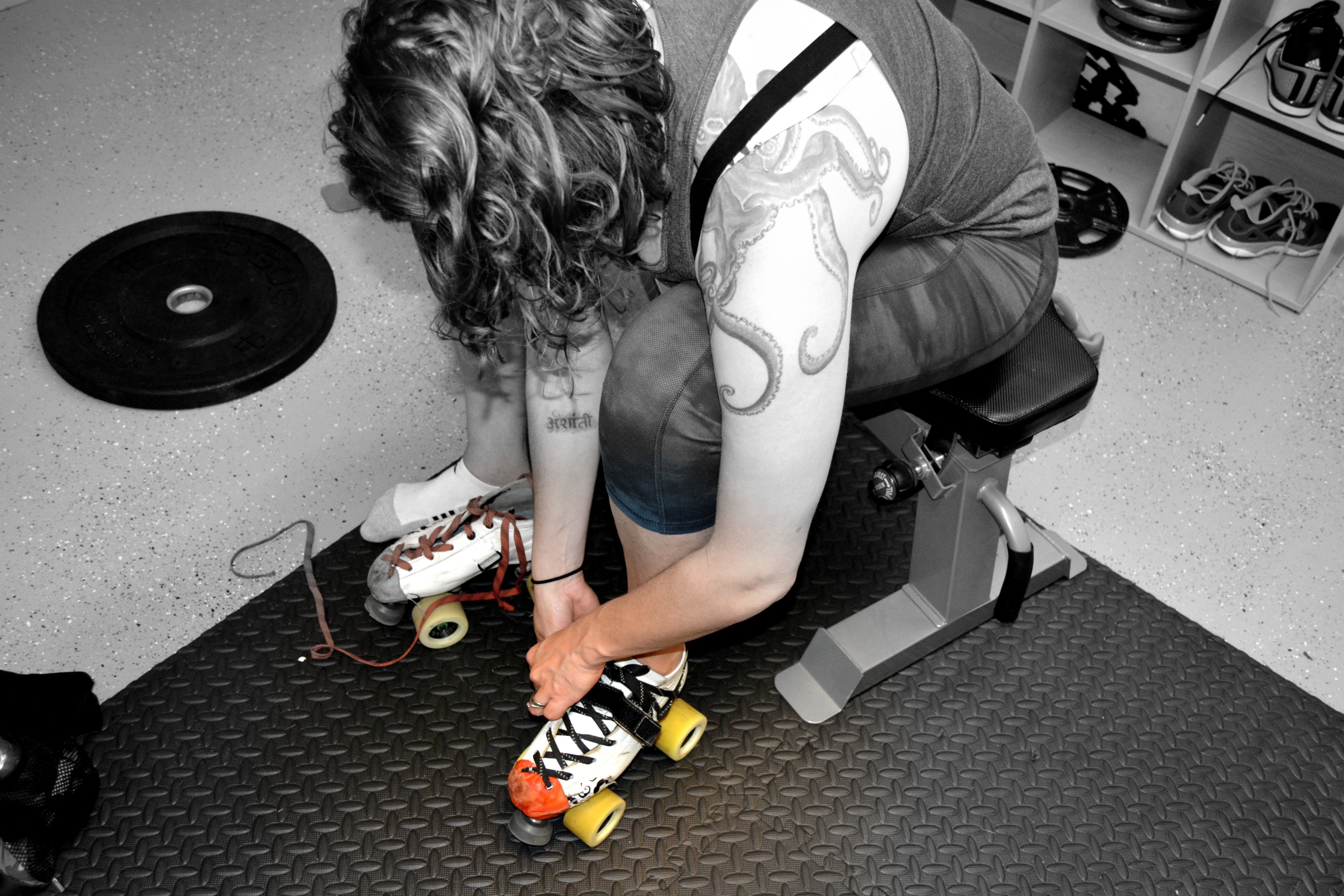
“So I think we should start that practice with some off-skates training.”
This was clearly The Universe’s way of testing my commitment to being a good captain to my team. Didn’t I just write an impassioned thread on Twitter about this issue? A thread that eventually turned into a blog post.
I’m ANTI spending practice time for off-skates training. There are a few teams that it works for and do it well, but most teams do not.
— 🐙 Prime (@ironoctopusfit) July 13, 2017
But the reality is, with the nature of roller derby, that you can’t always do what you know is best for training. Or what you know is scientifically sound.
- You have to give your skaters what they want.
- You have to look at your retention and attrition numbers.
- You have to make decisions based on things like work schedules, family time, and rink hours.
- YOU HAVE TO COMPROMISE SOMETIMES.
Yes. It secretly hurts me to admit that I can’t always do things the perfect way just because it’s the perfect way.
And, as I frequently tell my 1-on-1 clients, the mediocre thing that you will consistently do is infinitely better than the perfect thing that you won’t do.
The Truth About Off-Skates Practices
No one will die if you do them.
But, just like the rest of your practice time, you need to make the most out of that time.
Jogging around the track for 15 minutes isn’t the best use of your time. Nor is an aggressive round of sock derby.
Your team needs to be spending that time working on the foundational movements that will translate on to the track:
- Balance/Stability
- Muscle endurance
- Strength
- Power/Explosiveness/Speed
In that order.
Slapping together some haphazard Zumba workout you saw once or popping an Insanity DVD is fine. But it’s not ideal. And as athletes that also live normal, busy lives, we don’t have a lot of time to waste.
Making It Work For Everyone
Oftentimes, the biggest frustration with coaching (whether on-skates or off) is the huge disparity of skill and ability across your team.
There are some skaters on your team that are ADVANCED:
- They train off-skates frequently.
- They have higher base levels of cardio and muscular endurance, stability, strength, etc.
- This off-skates training feels like a total waste of time because they already do it.
There are some skaters on your team that are BEGINNERS:
- They rarely, if ever, train off-skates.
- They have lower base levels of cardio and muscular endurance, stability, strength, etc.
- This off-skates training feels more difficult and strenuous than a typical practice because it’s new.
As much as I’d like to tell you that there’s a way to create an appropriate off-skates training plan for EVERY SKATER on your league. That’s probably not true.
If you’re dealing with limited equipment or space, you just can’t create a program that will work specifically on what every single person needs to work on. That level of customization just isn’t possible without a lot of time and a lot of expertise.
SO WHAT CAN YOU DO?
- Pick a bodyweight training program. You kind of have to given your almost guaranteed lack of access to gym equipment for your entire team.
- Watch your team and the individuals carefully as they go through the program the first time. It will be pretty obvious which ones are struggling with the balance/stability end (usually beginners) and those that are more advanced.
- Adjust the exercises for the individual. Beginners need to focus on core engagement and the bodily control that will increase their balance and stability. Sometimes that means dropping reps if they get gassed near the end. More advanced exercises can start focusing on controlled, pumping reps, coming out of the hole of and exercise explosively, or descend more slowly to make it more challenging. (It might even be valuable to allow them to take it easy and use this as recovery time if they are training hard outside of practices.)
- Build in consistency. If this is a one time per week thing for your team, encourage your beginner exercisers to continue doing it at home 1 to 2 additional times per week. That cumulative effect is what will create the greatest benefit from your off-skates training.
Sometimes we have to compromise. Or find a way to shoehorn an additional practice into our schedule.
Or, in the case of my team, move our practice time up an hour so that people will actually come.
If your team is going to start incorporating off-skates practices, the key is to make sure that they are actually valuable for your skaters.
Because even the greatest off-skates practice means nothing if no one shows up.
Want more?
Grab this generic off-skates training program to use with your team. It’s designed for 3 off-skates training days per week over the course of 4-6 weeks.
Off-Skates Training Plan P1
You can also tell your newer skaters about my Stability & Mobility Program to get them started off on the right foot. Er, skate.

